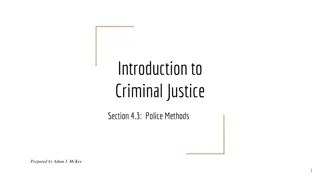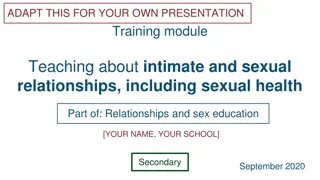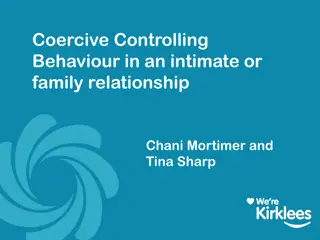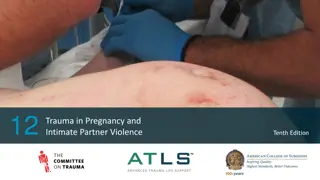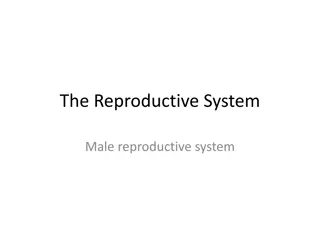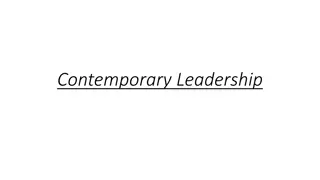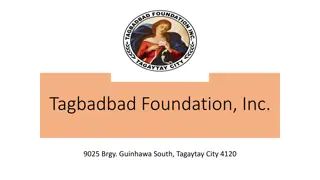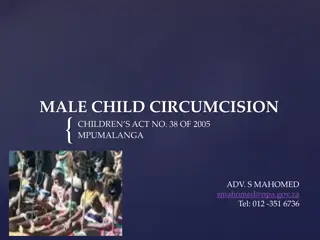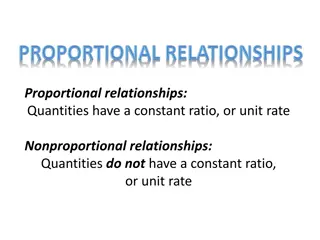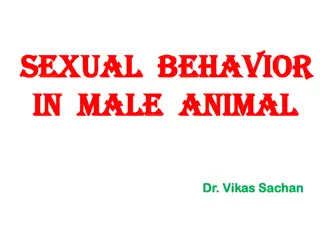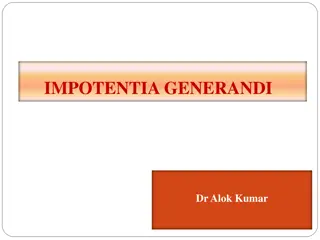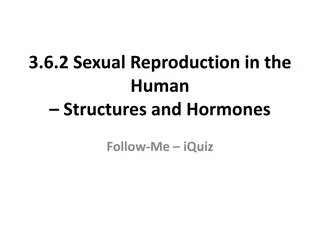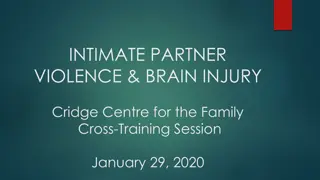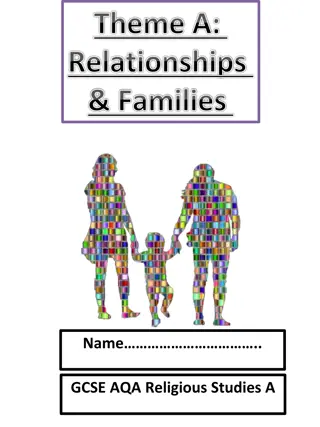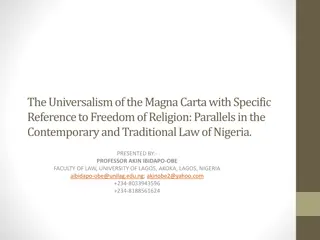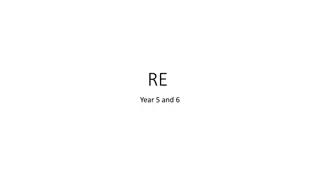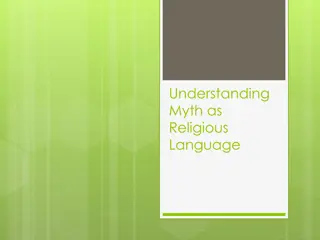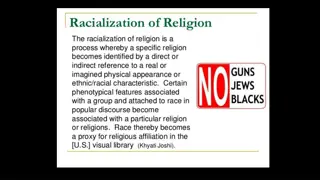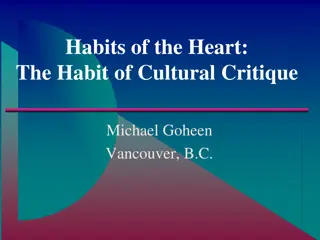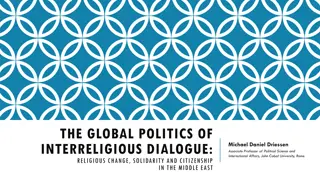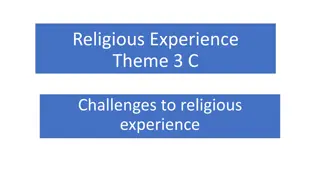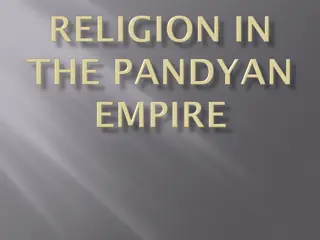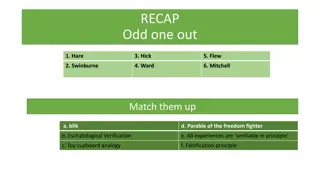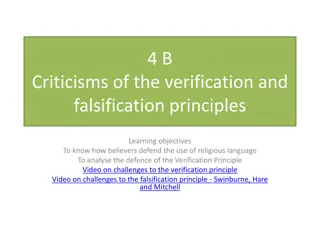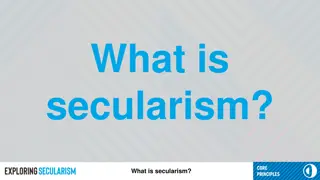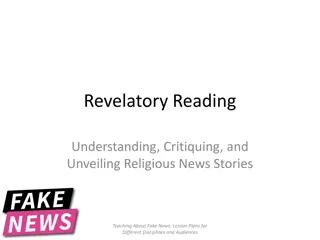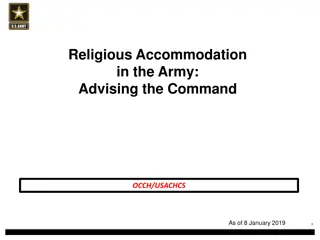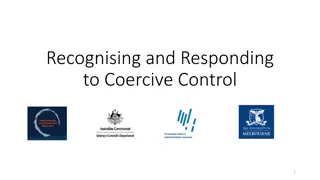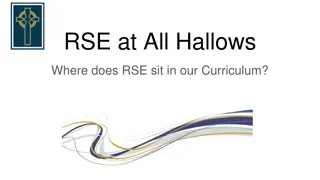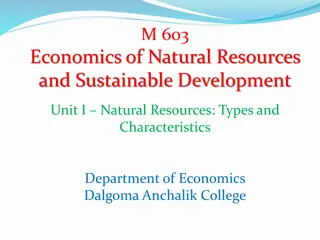Religious Resources for Deterrence of Male Abusiveness in Intimate Relationships
This research project, conducted in collaboration with various organizations and experts, delves into the role of religion in deterring male abusiveness within intimate relationships. Findings suggest that religion can serve as a deterrent at both individual and normative levels, emphasizing faith-based conscience, morality, and clergy mediation. The study highlights the potential of integrating religious and psychological aspects to develop culturally appropriate support systems for victims, survivors, and perpetrators in religious societies.
Download Presentation

Please find below an Image/Link to download the presentation.
The content on the website is provided AS IS for your information and personal use only. It may not be sold, licensed, or shared on other websites without obtaining consent from the author. Download presentation by click this link. If you encounter any issues during the download, it is possible that the publisher has removed the file from their server.
E N D
Presentation Transcript
Religious resources for deterring male abusiveness in intimate relationships Findings from Project dldl/ Project dldl/ -EMIRTA collaborative projects in Ethiopia -EOTC DICAC and Teams: Dr Romina Istratii (Project dldl/ ), Mr Bantamlak Gelaw (EOTC DICAC), Mr Aklil Damtew (EOTC DICAC), Mr Henok Hailu (AAU), Ms Beza Birhanu (EWLA), Dr Zinawork Assefa (EMIRTA), Mr Tesfaye Gonite (EMIRTA), Mr Yonas Habte (EMIRTA) and Mr Yohanns Demise (EMIRTA) Presented by: Benjamin Kalkum (Project dldl/ Associated Researcher)
Project dldl/ responds to this gap and potential A research and innovation project dedicated to the development and strengthening of religio-culturally sensitive, domestic violence alleviation systems in East Africa and the UK. Committed to being guided and implementing a practical decolonial approach based on community-based research and co-production with grassroots organisations Keen to integrate religious and psychological parameters in the analysis of domestic violence to develop more culturally appropriate and effective support systems for victims, survivors and perpetrators in religious societies, as well as their international migrant communities.
The role and influence of religious actors Sustainability Credibility Outreach Religious teachers and mediators are not generally depending on external funding and often reach where western programmes do not Religious teachers and mediators are usually trusted in the communities and have close relationships to lay communities The large majority in non- western societies are embedded in religious systems of thinking
Informed by anthropological research on domestic violence in the Ethiopian Orthodox communities The research: Explored how men, women and clergy rationalised and understood domestic violence and their attitudes around different types of domestic abuse and violence. Explored how religious language and beliefs were invoked to rationalise (justify or condemn) domestic violence. Identified if faith, the clergy and other factors could serve as deterrence mechanisms and resources to respond to IPV.
Findings suggested a potential of religion as deterrent of abusive behaviour among some men At the individual level At the normative level Men can be deterred from abusive or hurtful behaviour toward wives by a faith-based conscience, emphasising morality and upholding righteousness against sinning. Men accept clergy as mediators in marital conflict. Men see going to church and hearing the teaching of the faith as a way to reduce risk factors such as stress and anger. Violence is more often justified referring to cultural norms rather than religious ones, but most people to not distinguish between these dimensions. Clergy have the authority to juxtapose cultural traditions with religious norms, counteracting harmful gender norms. The ability of clergy to leverage on theological language and examples from religious texts and experiences allows them to address negative male behaviour, and to convey positive ways of being a man without alienating these men in the process (engendering resistance of unhelpful backlash).
The clergy training (programme with EOTC DICAC) 155 clergy were trained in a two-day interactive training The training had three components: Results of the anthropological research Teaching on church teachings and Patristic responses to gender-related and marital issues Safeguarding training on legal frameworkand victim/survivor support
The clergy training Success Factors: The theological content achieved the highest level of engagement. A mixed methods approach Centrality of theology in the trainings granted credibility in the eyes of the clergy, as well as using the clergy s own language to teach around gender relations, marriage and domestic violence. Refresher trainings / long-term engagement Bringing together different generations of clergy The theological training of the trainers and their own Orthodox Christian backgrounds made participants open to listening and engendered confidence in the training content. Centring on theological teaching and language their
Policy Framework for Engaging Men in Ethiopia There are several policy provisions that call men to take up more health services such as testing and treatment and to be more supportive to the sexual health needs of their partners. The only pieces of legislation that directly engage men are those dealing with sexual and reproductive health (SRH) and parenting. Men recognised as potential advocates for change in terms of transforming norms related to SRHR Men as partners in terms of maternal health services Men as partners in terms of HIV, STI and general SRH services Men are also identified as having an important role to play in the early health and subsequent development of their children. Source: Sonke Gender Justice & MenEngage Report for Ethiopia
Thank you For questions contactri5@soas.ac.uk Join the mail list DV-Gender-Faith on JISCMAIL for follow-up outputs


